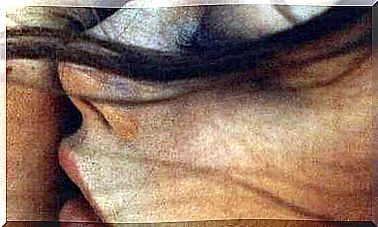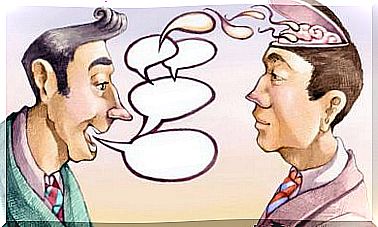Gut Microbiota And Addiction

Due to the large number of influencing factors, addictions are often very difficult to treat. Therefore, research is still ongoing into the various mechanisms and possible treatment options. Nevertheless, we already know a lot more about the various factors that can trigger addictions. Among other things, about the role that the gut microbiota plays in detoxification and withdrawal.
Microbiota are microbes that live in the mouth, vagina, skin, and intestines. Scientists have already been able to link this ecosystem to a variety of other diseases such as autism, Parkinson’s disease, anxiety disorders and schizophrenia. In fact, they seem to play a role in the development of addictions.
The gut-brain axis
Today we know that the digestive system has its own nervous system, the enteric nervous system, which consists of more than 500 million neurons. It also communicates with the central nervous system (CNS) and contributes to the balance of the brain and brain function.
The communication between these two systems is dynamic and bidirectional. This means that the gut microbiota can change the neuronal activity of the brain and vice versa. Nevertheless, the brain is protected by the blood-brain barrier, which is why the influence cannot take place directly. The intestinal neurotransmitters act through the cells of the intestinal wall, which enables them to communicate with the CNS.
Experts have found that the enteric nervous system in our body can produce large amounts of neurotransmitters, including dopamine, GABA, and serotonin.
Gut microbiota and addiction
Drug addiction occurs because these substances activate the brain’s reward center and stimulate the release of neurotransmitters, especially dopamine. This creates a very pleasant feeling and the brain gets used to it very quickly. Therefore, it calls for ever higher doses and this at ever shorter intervals.
As we mentioned earlier, the enteric nervous system is also known to produce neurotransmitters such as dopamine. When there is an imbalance in the dam microbiota, it can lead to the development of many different diseases. This condition also makes the ecosystem susceptible to addictions, which can have dramatic consequences.
Gut Microbiota and Alcoholism
In 2014 researchers published a study in which they examined the connection between intestinal bacteria and alcoholism. To this end, the researchers investigated whether there was a change in intestinal permeability and intestinal microbiota in people suffering from alcoholism. In addition, they analyzed whether these changes occurred due to alcohol addiction.
The researchers found that those who developed leaky gut syndrome (also known as leaky gut) had greater levels of anxiety and more severe withdrawal syndromes.
In addition, the scientists noted changes both in the composition of the gut microbiota and in their level of activity. Hence, they came to the conclusion that the microbiota plays a crucial role in alcoholism. It can also increase the risk of relapse.
Food addiction
In addition , experts have also looked at the link between food addiction and the gut microbiota by examining the feces of healthy people, as well as their BMI and images of their brains. To do this, they focused on the metabolites that are formed during the breakdown of tryptophan, an amino acid found in many foods. Once broken down, tryptophan turns into serotonin. Hence, this amino acid has a huge impact on mood and behavior.
This process has two effects. First, once tryptophan has been broken down by the gut bacteria, it leaves the body through the feces. Second, during the breakdown process, tryptophan is converted to indole, a metabolite that is involved in the gut-brain axis.
In addition , the researchers found that indole is significantly linked to obesity and uncontrolled food intake. This may be due to its impact on the brain’s reward system, particularly the circuits associated with the amygdala.
Treatment options
These results offer a different perspective on addictions and open up the possibilities for new treatment options. The experts hope that rebalancing the intestinal flora can help alleviate some key aspects of addiction.
For example , some scientists suggest altering intestinal hormones. Others have recommended treatment approaches that, while very simple and commonly used in Traditional Chinese Medicine (TCM), can also be very effective.
These include methods such as fecal microbiota transplantation. Essentially, this procedure consists of performing a fecal transplant, in which the doctor transfers the microorganisms from a healthy donor into the patient’s intestines.
So far , however, this method has only proven effective in treating chronic colitis. Their use for the treatment of other diseases is more of a theoretical consideration at the present time. Yet scientists continue to research the role the gut microbiota plays in addictions and other diseases. Hoping to keep finding new treatment options.









